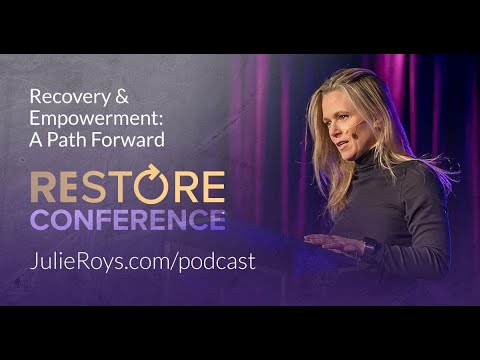Hi friends,
At RESTORE 2023, I was deeply moved by Lori Anne Thompson’s message:
Here are some of my notes from her talk:
“The survivor community is a community I was born into. It was also a community I never, ever wanted to be part of.”
“In one study on clergy sexual abuse, it was found that the average age of onset is 30 and an average duration of four years of abuse. 62% were being counseled by the clergy member who abused us. Only 9% were supported by the church they disclosed to. 80% report that it negatively impacted their relationship with God. Another study found that 40% of survivors have PTSD.”
“When you seek public justice, you often see public crucifixion. Your private hell becomes a public humiliation. Silence looks like a better option.”
“To tell the truth is to be labeled a liar. To be silenced while offenders receive standing ovations.”
Abusers think, “If you can’t silence a victim, make sure no one listens.”
“Abuse annihilates our attachment systems. It crushes initiative.”
“It takes time to recover.”
The first stage of recovery is the establishment of safety and stability.
This involves for caring for each part of ourselves, including our physical, emotional, financial, social, and spiritual needs.
The second stage of recovery is grieving and remembering.
In part, this involves making meaning out of trauma.
The third stage of recovery is reintegration. Neither being defined by nor denying your trauma.
This involves gaining agency, the capacity to say no, and choosing one’s own identity and role, and being able to
Four signs that you have navigated the reintegration stage:
- Can tolerate the symptoms of PTSD
- Can manage the feelings of trauma
- Can recall your traumatic memories, but they don’t control you
- Can tell a coherent narrative, connected to your feelings, of your own story.
How does a moral community respond to these violations?
Be outraged by the violations.
Ask the survivor, “What would it take to repair the harm, or at least much as possible?” Then, listen.
Survivors usually want public acknowledgment and moral vindication.
We do justice and love mercy.
“You can become the person you desperately wish others had been for you.”
“I didn’t survive all of this to not really live.”
Personal Reflection or Group Discussion Questions:
-
How does her incredible vulnerability affect your heart?
-
How does her story help you understand why survivors are often reluctant to report their experiences to authorities or seek help from a church?
-
“I had no faith or hope left, so I had to borrow theirs.”
-
How have you borrowed faith and hope from others?
-
How can you share your faith and hope with others?
-
How does her story give you insight into how power dynamics can suffocate someone’s life?
-
How does her story help you understand the insidious nature of DARVO?
-
Judith Hermann: “The first principle of recovery is empowerment of the survivor."
- How does this insight change how you care for survivors?
- "You are not responsible for your hurt, but you are responsible for your healing.”
- How does this insight offer empowerment?
-
How does her story move your heart to be an advocate for safe churches, families, and communities?
-
What does it look like to build communities of equality, mutuality, and reciprocity?
If I missed anything, please let me know. I’m curious to hear your experience of watching this honest and challenging message.
